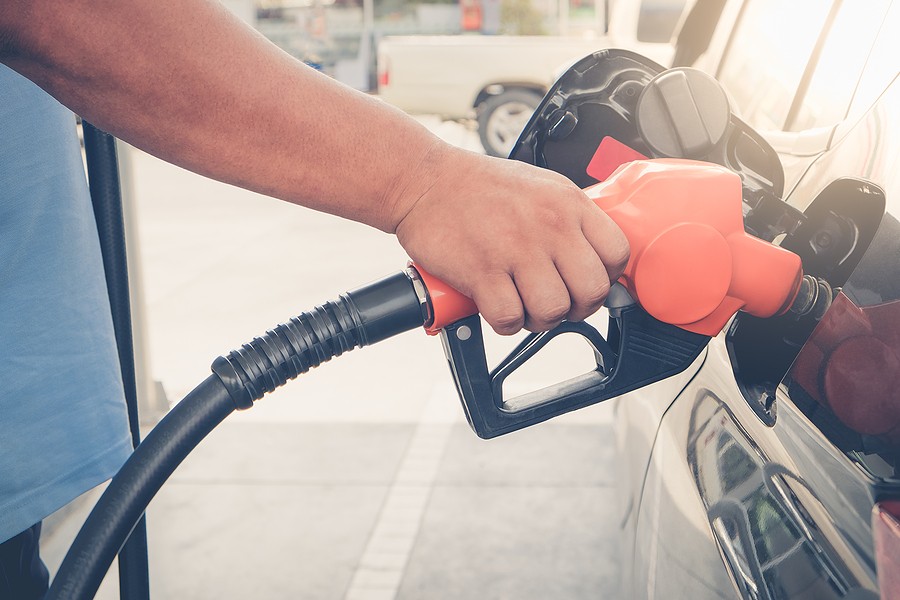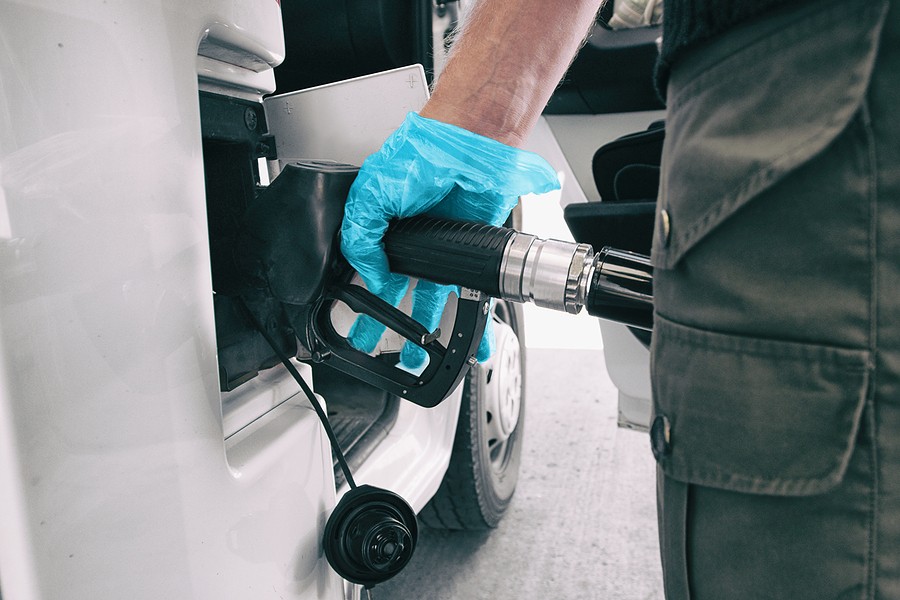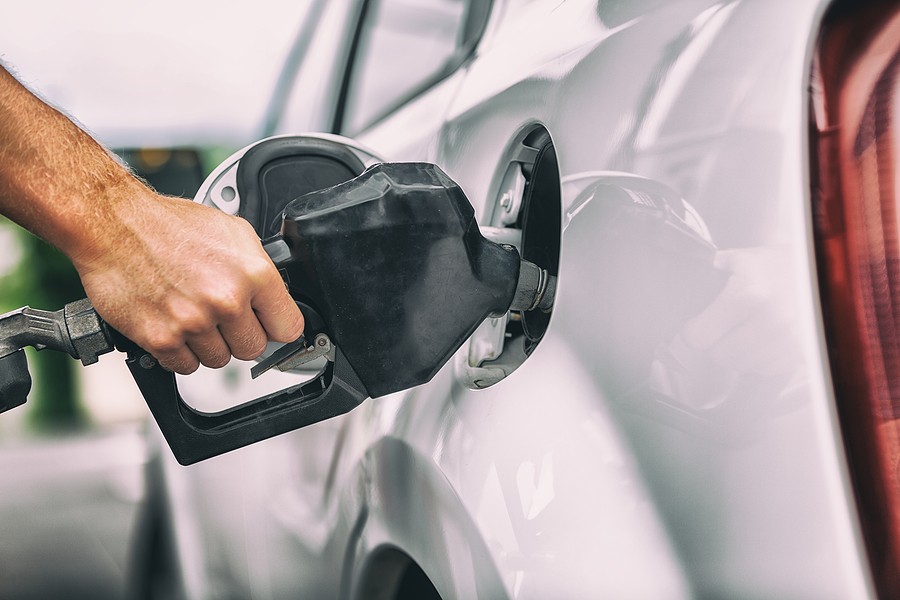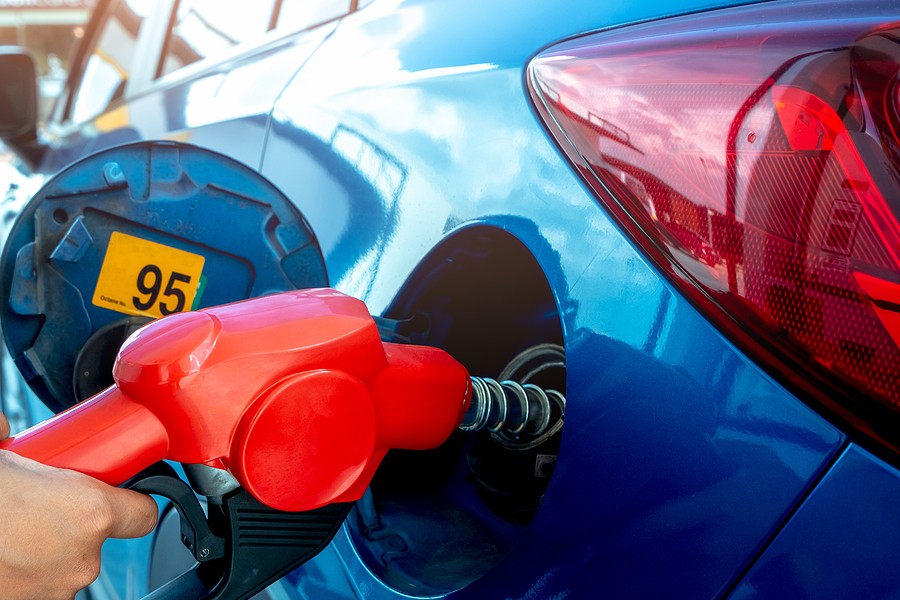If you've ever asked yourself, can gas freeze in your car or gas can, the short answer is gas will not freeze inside the fuel lines or the can unless the temperature outside is below – 40 Fahrenheit.
Winter impacts our vehicles in many different ways. You might be familiar with situations where your battery shows some problems, which is the type most common problem in the winter.
However, have you ever dealt with problems related to fuel? Did you ever heard about problems related to fuel freezing in your fuel lines?!
One of the common questions we received from our readers is: can gas freeze in your car or gas can? This article will provide you with all you need to know to help you understand whether the gas will freeze or not and what temperatures to expect problems with fuel freezing. So, let's read down for more details!

Can gas freeze in your car or gas can?
You've probably heard from many people that there are risks of gas freezing in the fuel line, but you might still have the question, can gas please be in your car or gas can?
The short answer is, according to automotive experts, your gas might freeze in the fuel lines if the temperature is way below – 40 degrees Fahrenheit. This is an extreme temperature, and it does not happen in every location. So, therefore, if you know that you're going to drive an area where the temperature is going to drop very low, you got to be prepared and do all you can to prevent the situation from happening.
Keep in mind that even if you did not hit the – 40 degrees Fahrenheit, you might still deal with situations where the fuel starts forming crystals that are not completely frozen. However, this state also has its negative consequences, and it might cause problems to your fuel system and probably prevent you from driving your vehicle properly.
When the fuel has lots of crystals, it can easily clog the fuel filter and prevent you from pulling the right amount of fuel to drive your vehicle and generate the required energy so you can move smoothly.
Therefore, when dealing with very low temperatures, you don't need to wonder, can gas freeze in your car or gas can; instead, you should also focus on what could go wrong as the temperature drops before it even hits the freezing temperature your fuel.
Can gas freeze and gas can?
We've discussed the gas freezing inside the fuel line previously but is it the case that there are situations where gas will freeze inside the gas can?!
According to recent statistics, it's unlikely that you'll see that the gas is freezing inside the gas cap because this requires very low temperatures. These temperatures do not occur in many locations around the world.
Even if it froze inside the can, some experts mentioned that you would not notice this because the temperature will be extremely cold to the point that you will not be able to touch your gas can or even check on it to see if it has liquid or frozen gas.
At what temperature does gas freeze in your car?
As we mentioned, you will most likely deal with frozen fuel in your car when the temperature outside is below – 40 Fahrenheit. However, as we also indicated, you have to be more concerned about situations where the gas did not completely freeze. Still, it started forming crystals that could hurt your vehicle and how the fuel delivers to the engine.

Is it OK to keep a gas can in your car?
Sometimes you might find articles online recommending that you carry a gas that can work with you in the vehicle as a safety recommendation. However, many experts do not recommend keeping a gas can in your car.
Since we're discussing situations where it's very cold outside, the problem with keeping interested in your car is more about when it's very hot outside. There are very high risks of situations where the gas can might explode or go on fire because the temperature is very hot outside which is a very dangerous situation that could impact your life and the safety of other people driving with you.
Is it bad to leave your gas tank low in the winter?
If you're a big fan of recommendations and tips and tricks to deal with the winter season, you might have already concluded that you should never leave your gas tank very low during the winter season.
This is a very important recommendation because when the gas tank is very low, your Fuel pump starts sucking air instead of fuel; therefore, you will overstretch the pump and cause it to overheat until it gets to a point where it fails.
Also, as the pump sucks more air, it allows this air to go through the fuel filter and leave lots of debris and contaminants, which could clog the fuel filter that is not designed for this job. So the, overall, you will deal with all sorts of negative consequences related to a clogged fuel filter before you should.
If you think about the negative consequences and potential costs associated with the field fuel pump or problems after a completely clogged fuel lifter, think twice before leaving your fuel tank low during the winter season.

What are the common problems of leaving your gas tank low?
Although you might not necessarily deal with a significant problem when your gas tank is low when it comes to frozen fuel lines, there are some other consequences that you should be aware of before you leave your gas tank less than 1/4 most of the time:
1. Risks of gasoline breaking down
The first and most common consequence you will do within your fuel tank is continuously less than 1/4 is the situation where your gasoline breaks down into different components. These components can be very dangerous and might form other byproducts that could pose risks to you and other people driving with you or around you.
2. Water condensation
If your fuel system is not filled with fuel most of the time, there is a very high chance for water to condense inside the fuel lines. When that happens, there is a much higher chance for this water to freeze inside the pathways and cause damage to the whole system because it's not designed to deal with frozen water.
As you might already know, water freezes at higher temperatures than your fuel, especially if you have a few other types that protect it from freezing during low temperatures.
Therefore, you should think twice before you leave your gas tank at a very low level most of the time.
3. Shorten the life of the fuel pump
As we mentioned before, when your fuel tank is continuously low, you will oversee the fuel pump, and as a result, the fuel pump will not last the time it should.
You will easily deal with major complications in your fuel pump, requiring a fuel pump replacement. Did you know that replacing a fuel pump is very expensive to repair?! Many people might even give up on their vehicles because they have a failed fuel pump.
4. Less fuel than the meter reading
All of us rely on the fuel meter to let us know about the amount of fuel inside our tank. However, if he continuously does, I have a vehicle without more fuel than one quarter; that's not a good situation because it can impact the fuel meter's curacy.
In other words, even if it looks to you like you have one-quarter of fuel in your fuel tank, that could not be the case. It could be even lower than 1/5 of the tank that you have.
This is a dangerous situation because it will show you that you will have more fuel than the reality, and that could allow you to drive more and longer distances without needing to stop at any gas station when your vehicle needs it.
Of course, you will deal with situations where you might run out of fuel in a location that doesn't have any gas station nearby, which means more costs on bringing in tilling service or probably someone to help you.

How to unfreeze fuel inside the fuel lines?
Say that you got into a situation where your fuel is just frozen inside the fuel lines. What do you do?!
The good news is that automotive experts are aware of the situation and have some solutions to help you unfreeze your fuel inside the fuel lines without needing a professional.
Let's take a closer look at some of the automotive expert's recommendations
1. Move your vehicle inside
The first thing you can do is to drive your car and move it inside the garage or any covert area. This way, you get the adventure of warming the vehicle and preventing dropping the richer even more from the extreme cold temperature outside.
2. Add more fuel
Some experts recommend adding more fuel inside the fuel lines, and when you add fuel, you will be warmer than what's inside the fuel lines; therefore, it might allow the fuel lines to unfreeze and have your fuel run again smoothly without any issues.
3. Try antifreeze additives
There are tons of examples of antifreeze additives that you can add to your fuel system. These chemicals are powerful and can easily unfreeze your vehicle's fuel inside the fuel lines without needing a professional. However, this does not mean that it will always work because your fuel system is already frozen, and it might require calling your professional to see if these simple additives will resolve the issue.
4. Try a heat source
Finally, there are many safe heat sources that you can try and put around your vehicle. Keep in mind that you're dealing with the fuel system, which means there are risks of fires, and using the wrong heat source might not be a good idea. Check what automotive experts recommend and see what type of heat source you can put to allow your frozen fuel lines to unfreeze.

Final thoughts
Extremely low temperatures can be very challenging for our vehicles. It will impact different components in your vehicle, including the fuel system.
One of the many questions we received from our readers is, can gas freeze in your car or gas can? As we discussed in this article, unless you are driving in areas where the temperature is way below – 40 Fahrenheit, it's unlikely that fuel will freeze in the fuel lines. However, fuel might start forming some crystals, which your vehicle's drivability and could result in negative consequences that you don't want to deal with.
If your car has many problems and if you feel that it's not ready to deal with the winter season, it could be a perfect time to sell your vehicle and use its value to buy a better car. Did you know that Cash Cars Buyer is one of the best places to sell any car?!
Cash Cars Buyer is one of the top-rated car removal companies in the nation that guarantees to pay you the top dollars and provide you with free towing despite your living location around the United States.
Our process is very straightforward and doesn't take more than a couple of days to get your car removed safely and for the most money.
All it takes you is to:
- Describe your car's type and condition
- Receive our instant free quote
- Accept the quote
- Get your car removed and receive your cash payment on the spot!
To learn more about our process and our team, you can reach out to us by calling us at (866) 924-4608 or by visiting our home page click on the free instant online offer.



